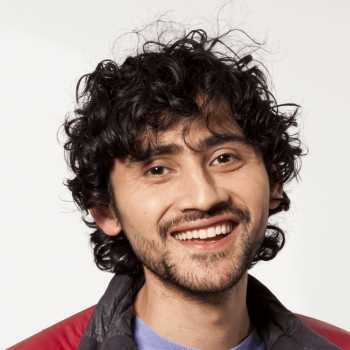
A biophysicist of repute in the contemporary world, Dr. Manu Prakash is an assistant professor of bioengineering at Stanford University, USA. Born and raised in Meerut, India, Dr. Prakash finished B.Tech. in Computer Science from IIT Kanpur in 2002. Soon after, he joined Ph.D. in Media Arts and Sciences at Massachusetts Institute of Technology, MA, USA, and graduated in 2008.
Dr. Prakash runs a laboratory devoted to projects as varied as economical paper microscopes, water computers and biophysics. He recently discovered the remarkable physics of a lily pad beetle for pure scientific curiosity. He described the research as `just good old natural history,` with a large dose of physics.
Endowed with broad interests, Dr. Prakash and his students have developed a computer that operates using water droplets. Their goal is to design a new class of computers that can precisely control and manipulate physical matter. Because of its universal nature, the droplet computer can theoretically perform any operation that a conventional electronic computer can crunch although at significantly slower rates.
Dr. Prakash had earlier shocked the scientific community by developing a pocket-size paper microscope which he has named as `Foldscope` ` a printable, use-and-throw microscope made almost entirely from a sheet of paper and is powerful enough to detect a malaria parasite in a drop of blood, yet costs just 50 cents.
By using parts from a music box, Dr. Prakash has created a device that can be programmed to mix precise amounts of chemical fluids in a way that is useful for both students and researchers. The design relies on metal pins that pass-through punch card paper in order to release chemicals from individual channels. His prototype can be recreated for just $5.
Dr. Prakash is best known for his pioneering work in inventing high-tech tools using inexpensive materials ` an endeavor he calls `frugal science`. His inventions may have been designed to address complicated problems, but their low cost and simple designs make them accessible to everyone.
More than fifty thousand Foldscopes are in use today. Prakash and Cybulski have now set up a benefit corporation (a type of for-profit corporate entity, recognized in most states in the US, that creates a positive impact on society, the community and the environment) called Foldscope Instruments, with factories in San Francisco and China, that hopes to make and distribute a million instruments by the end of this year. Cybulski is the CEO of Foldscope Instruments. They also plan to set up a manufacturing unit in India, among several other sites.
While the Foldscope is being put through multiple clinical and field trials for use as a research and diagnostic tool, its founders are more excited by deeper, more intangible goals.
`A very simple vision is, what happens when a microscope becomes as common as a pencil`` says Prakash over a phone interview. `Pencils are everywhere. And their presence indicates something very profound`literacy. Microscopes are a way of access to science, and if thousands and thousands of kids around the world can pull out a microscope from their pockets, what that can do is create a society that`s not just aware of science, but truly engaged in it; not just from the top down, but also from the bottom up.`
Prakash, who is 37 years old, was born in Mawana, a rural sugar-producing town in Uttar Pradesh. He runs the Prakash Lab at Stanford University, a playground for frenetic inventor prodigies across various disciplines, all engaged in `curiosity-driven science`. They often work, Prakash says, without a set agenda, `working on intuition`we don`t know whether something we are working on will ever be useful, but we think there is something there`.
Prakash is leading what could be termed, without much exaggeration, a revolution in scientific and medical research. It`s called `frugal science`, and it has a simple premise: Is there a way to build scientific instruments and medical systems that are really, really cheap` Can we then share them with everyone, particularly in resource-poor countries with limited access to technology`
Prakash has infused this core value in the workings of his lab. Since the first Foldscope was made, the laboratory has, in quick succession, created a device that allows smartphones to scan for oral cancer; a method of identifying mosquito species by recording the sound of their wingbeats with a mobile phone; and a `chip` that mosquitoes mistake for human flesh and bite into, depositing their saliva on the chip, which is then sampled for pathogens and DNA. This year, in another major breakthrough, they created a centrifuge made of a paper disc and piece of string`called a `Paperfuge``that can reach up to 125,000 RPM (revolutions per minute) just by pulling on the string with your hands, and can separate plasma from blood in under 2 minutes, just like a $10,000 centrifuge used by medical labs, spinning at around 16,000 RPM.
`The idea of frugal science is not about hacking something together quickly,` says Prakash. `For each of our tools, there are 10-20 pages of math involved. We are often trying to look at unknown principals.` Please view the links below to view the genius of this Indian.
